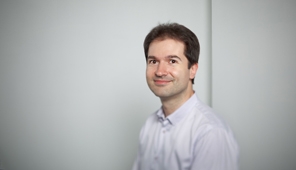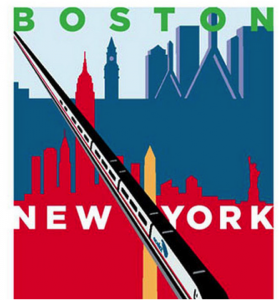
Sim Simeonov has helped launch and build companies in Boston, NYC, DC, on the West Coast and abroad. So when I asked him why he lives in Boston, I was surprised to hear it primarily has to do with personal choice, and less about the innovation ecosystem here. But after a great conversation with him and bumping into him later at WebInno, I’d challenge him on that point. Serendipitous meetings with entrepreneurs, new ideas, and close quarters that foster strong personal connections have most certainly played a role in keeping him grounded here in Boston.
Sim brings a unique perspective and value to Boston, and as an entrepreneur who appreciates his willingness to speak with me, I offer that we need more leaders in his mold:
- He is actually an experienced entrepreneur (investing came second), and has co-founded, launched, and helped build several successful companies (find all of them here – it’s an inspiring list for entrepreneurs to peruse)
- He is both a technical co-founder and a business co-founder, with keen knowledge of three hot sectors here in the northeast (advertising, mobile and cloud)
- He is an early stage investor and adviser through his company FastIgnite
- He was partner at a large VC firm and is now executive in residence at General Catalyst (not be be confused with entrepreneur in residence, where the goal is to create a new company). This position is a unique partnership between GC and FastIgnite where Sim can work with startups even if they aren’t the perfect fit for GC, and designed to be a “no-lose proposition” for entrepreneurs.
- He has lots of side projects including building open startup tools and analyzing angel investment returns (the beginnings of his newest, a not-for-profit focused on child safety, can be found here)
While Sim talked about a variety of topics, one theme pervaded our talk: his love for early stage startups and fostering them into successful businesses. Here are several fronts on which he offered advice to early stage entrepreneurs and building the creative economy here in the Northeast:
On Mentoring in Boston
 Sim and I spent a good amount of time speaking about seasoned entrepreneurs and leaders mentoring the younger crop of entrepreneurs here in Boston. “It’s really hard,” he offered. “CEOs are very busy and focused on growing their own companies.”
Sim and I spent a good amount of time speaking about seasoned entrepreneurs and leaders mentoring the younger crop of entrepreneurs here in Boston. “It’s really hard,” he offered. “CEOs are very busy and focused on growing their own companies.”
He went on to describe the other side of the equation, where it is very difficult to provide spot-on advice on a particular subject or challenge unless you have a full view of where a company is in its development and the intricacies around that challenge. “Pattern recognition steeped in context is a powerful force mentors bring to entrepreneurs. However, pattern recognition with limited context can be dangerous,” Sim said.
From there we dove into his flavor of mentoring, which has much more to do with being actively involved at a key point in a startup lifecycle — whether as cofounder, CTO or active adviser (if you read about the companies he has been involved in you will make note of his engagement, as well as of these companies’ successes). This allows him to get his hands dirty and truly get to know the businesses, using his pattern recognition from building startups to point them in the right direction — even when this means prototyping or tweaking a presentation until 2am.
On Successful Entrepreneurs & Raising Capital (in Boston)
When I asked Sim about his view on the state of fundraising and capital here in Boston, he remarked that there’s plenty of capital. “There’s really two types of companies: those that get funded and those that don’t. The former often have over-subscribed seed and Series A rounds.” He went on to describe that VCs tend to piggy-back one another on investments, but some of the most successful entrepreneurs continue to be those who march forward when told they can’t do something.
On the topic of the most common pitfalls he has seen from early stage entrepreneurs failing to raise capital, he offered that many expose themselves too early to too many investors without a clear plan for what they want. He also noted that many seed stage startups raise too little capital and proceed on with a go-it-alone mentality — only after failing initially to meet their objectives do they ask for help. “I’m much less apt to help a company at that point,” he noted. His advice: ask for advice early and get buy-in from advisers by getting them involved when skies are clear. “You may have a hard time recruiting them when clouds start gathering,” Sim added.
On More than Boston – the Northeast

“It’s easier to get from Boston to NYC than it is to get from San Francisco to San Jose some days,” Sim said. He wants to see more collaboration between NYC and Boston, remarking that the ecosystems complement each other well in terms of resources.
Here at BostInno we couldn’t agree more, and have enjoyed the opportunities we’ve had to cover and get to know many entrepreneurs from NYC. Sim is a walking example of the success of this collaboration through his involvement with NYC-based Better Advertising – an organization bringing more transparency to the advertising world.
“What we need more of is big ideas and the ambition to persevere and change the world,” says Simeonov. It’s a theme we continue to hear from investors in the Boston area, most recently from an actual venture accelerator that is providing first time entrepreneurs with mentorship to help bring their big ideas into the market.
A big thank you to Sim for offering his insights to the BostInno community. Make sure you follow him on Twitter (@Simeons) and his blog for more advice. He is always looking to connect with passionate entrepreneurs.
